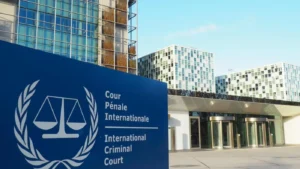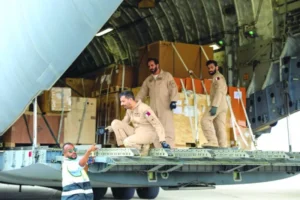As Kasai humanitarian crisis reaches new heights, Red Cross expands response to cholera outbreak
GENEVA, Switzerland, January 9, 2018/ — The insidious spread of cholera in the Democratic Republic of the Congo (DRC)—including to parts of the country where it is rarely seen—threatens to dramatically worsen what is already one of the world’s largest humanitarian crises.
More than 1,000 people have died as a result of the outbreak that first started in January 2017. More than 53,000 cases have been reported. This health emergency comes alongside the forced displacement of more than 1.4 million people in the province of Kasai; the result of escalating violence.
“The level of human suffering in DRC is reaching new heights every day,” said Dr Fatoumata Nafo-Traoré, Regional Director for Africa at the International Federation of Red Cross and Red Crescent Societies (IFRC). “Over 1.4 million residents of Kasai have fled their homes; nearly two million children are suffering from severe acute malnutrition and, now, hundreds of people have died of cholera.”
The current outbreak has reached unprecedented levels, having spread to 21 provinces of the country’s 26 provinces, including many where cholera is less prevalent. One of these is Kasai, where the disease has occurred for the first time in 15 years.
The outbreak is fuelled in large part by the Kasai conflict, which has led to the near total collapse of the region’s health system. In Lomami, as in many other provinces impacted by the Kasai crisis, as many as 85 per cent of healthcare centres have been destroyed, and there is a pressing need for clean water sanitation, hygiene and a community led health response for both displaced and host populations.
The DRC Red Cross is responding to the needs of people affected by the dual crises. In Kwilu, Sankuru and Lomami Provinces, Red Cross teams have provided relief items, emergency food, shelter supplies, hot meals and cash to 2,000 people.
“Most of the displaced people either live in makeshift shelters or with host families—which are equally vulnerable. This influx of displaced persons puts additional pressure on host communities, thereby increasing the spread of cholera and other waterborne diseases,” said Gregoire Mateso, President of the DRC Red Cross, “The Red Cross has more than 60,000 active volunteers with longstanding experience in responding to crises, but our limited resources prevent us from keeping pace with the mounting scale of urgent needs.”
To support these efforts, IFRC is appealing for nearly two million Swiss francs to deliver immediate and potentially life-saving assistance to 244,000 people affected by the violence and cholera outbreak in Lomami Province.
The DRC Red Cross has responded to natural disasters, civil unrest and epidemics including Ebola, yellow fever, cholera and measles in the past and has a vast network of volunteers across the country. In 2017, Red Cross staff and volunteers helped contain an Ebola outbreak and delivered emergency assistance to more than 3,000 people who fled conflict in the Central African Republic.





